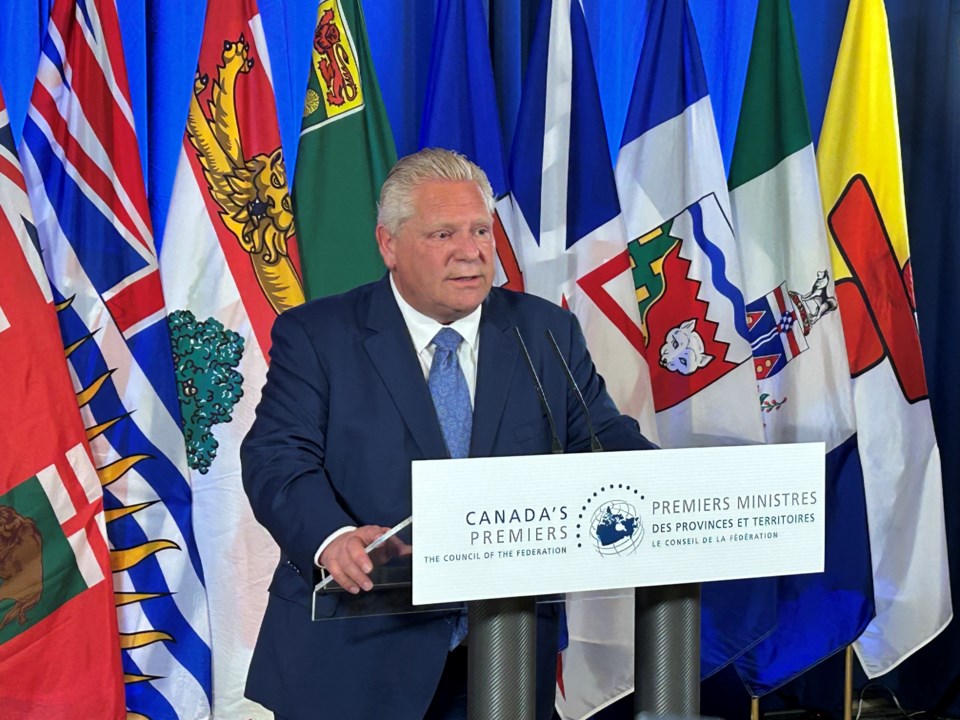EDITOR’S NOTE: This article originally appeared on The Trillium, a new Village Media website devoted exclusively to covering provincial politics at Queen’s Park.
How to attract and retain health-care workers dominated discussions at a closed-door meeting between nurse union leaders and Canada's premiers on Tuesday, both sides said.
"Nurses are leaving faster than they're entering, and it's hurting patient care," Canadian Federation of Nurses Unions president Linda Silas said.
It was an issue before the pandemic, but COVID-19 put it into overdrive. It turns out not many last long in a gruelling, often thankless career where one is at risk of infection, racism and violence. Bill 124, which limits public sector wage increases to 1 per cent per year — and which Ontario is currently appealing to the Supreme Court to keep in place — added to the perfect storm, nurses have said.
"If I just look at Ontario, we're seeing ERs being overloaded or closed everywhere, and surgeries being cancelled," Silas said.
In response, the Ford government has added financial incentives for nursing students, sped up approvals for internationally trained nurses, and, controversially, expanded private delivery of surgeries.
The nursing carrots appear to have worked. A report from the College of Nurses of Ontario (CNO) released last month shows the number of nurses in Ontario has increased since 2020 — though the share of nurses practising outside of the province or going on leave has increased.
"We always need more qualified nurses and we look forward to increasing that," Premier Doug Ford said on Tuesday. He and other premiers are holding their annual Council of the Federation meeting from July 10 to 13 at Winnipeg's Fort Garry Hotel.
One idea to make nursing more attractive, Silas said, is to legislate nurse-to-patient ratios, as British Columbia and Nova Scotia have done in a bid to guarantee lower workloads. She said her organization is "very open" to other suggestions.
That would be a big help, but it's not very likely to happen under this government, Registered Nurses Association of Ontario president Doris Grinspun said.
She said she's focused on more "realistic" proposals like adding nurse practitioner-led clinics to increase access to primary care. Orillia and at least five other communities have proposals on the health minister's desk but she hasn't moved on them yet, Grinspun said.
"People in many communities — 17,000, 16,000 (people) — without access to primary care. Then they go to the ER and the ER is closed," she said.
The province should also increase nurses' pay so they don't flee to agencies, which cost hospitals much more, Grinspun said.
The Trillium asked Ford whether the CNO report illustrated an enduring problem with burnout among nurses, and asked what more the province should be doing. He spoke about his government's success in attracting more nurses instead.
"We can never stop making sure the flow of nurses or doctors — anyone in the health-care profession, as our province is growing at an unprecedented amount of people coming in every single year — we need to have a strong health-care system," he said.
All premiers, including Ford, listened to Silas' suggestions at the breakfast meeting, she said.
"I think he gets it," she said, though she noted the relationship between the government and nurses soured after Bill 124.
"So we're hoping that they will back away (from the court case), but we didn't talk about that this morning at all," she said.
Silas said she and her counterparts in other health unions will be able to get more into the nitty-gritty at the meeting of health ministers in October, on Prince Edward Island.
"That's where we will go more into a deep dive of the solutions on safe staffing, on retention solutions, on how to help our students in our faculties of nursing," she said.
